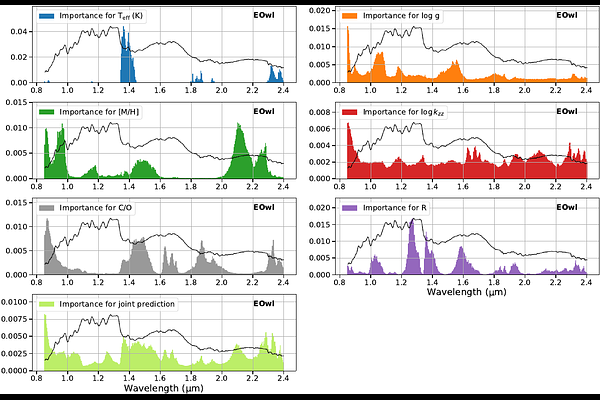Comparing Grid Model Fitting Methodologies for Low-Temperature Atmospheres: Markov Chain Monte Carlo versus Random Forest Retrieval

Comparing Grid Model Fitting Methodologies for Low-Temperature Atmospheres: Markov Chain Monte Carlo versus Random Forest Retrieval
Anna Lueber, Adam J. Burgasser
AbstractThe atmospheres of low-temperature stars, brown dwarfs, and exoplanets are challenging to model due to strong molecular features and complex gas and condensate chemistry. Self-consistent atmosphere models are commonly used for spectral fitting, but computational limits restrict the production of finely-sampled multi-dimensional parameter grids, necessitating interpolation methods to infer precise parameters and uncertainties. Here, we compare two grid-model fitting approaches: a Markov Chain Monte Carlo (MCMC) algorithm interpolating across spectral fluxes, and a Random Forest Retrieval (RFR) algorithm trained on a grid model set. We test these with three low-temperature model grids -- Sonora Diamondback, Sonora Elf Owl, and Spectral ANalog of Dwarfs (SAND) -- and a sample of eleven L and T dwarf companions to FGKM stars with known distances, compositions, and ages. Diamondback models are optimal for early- and mid-type L dwarfs, Elf Owl for mid- and late T dwarfs, and SAND for young L dwarfs and L/T transition objects. The MCMC approach yields higher fit quality and more precise parameters, though best-fit parameters are generally consistent between approaches. RFR analysis is orders of magnitude faster after training. Both approaches yield mixed results when comparing fit parameters to expected values based on primary (metallicity and surface gravity) or evolutionary models (temperature and radius). We propose modeling low-temperature spectra efficiently by first fitting multiple model sets using RFR, followed by a more accurate MCMC assessment, to accelerate improved grid development.